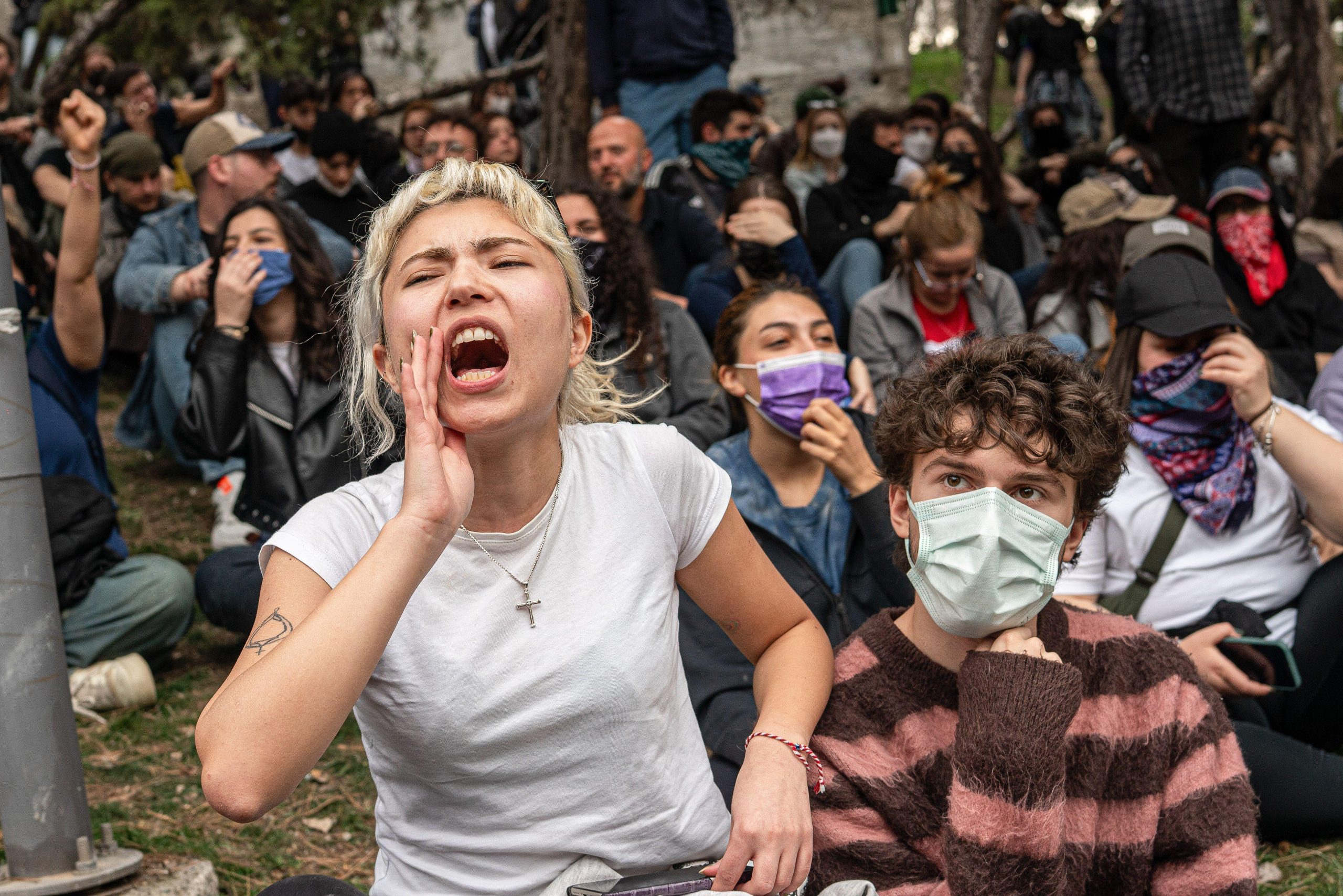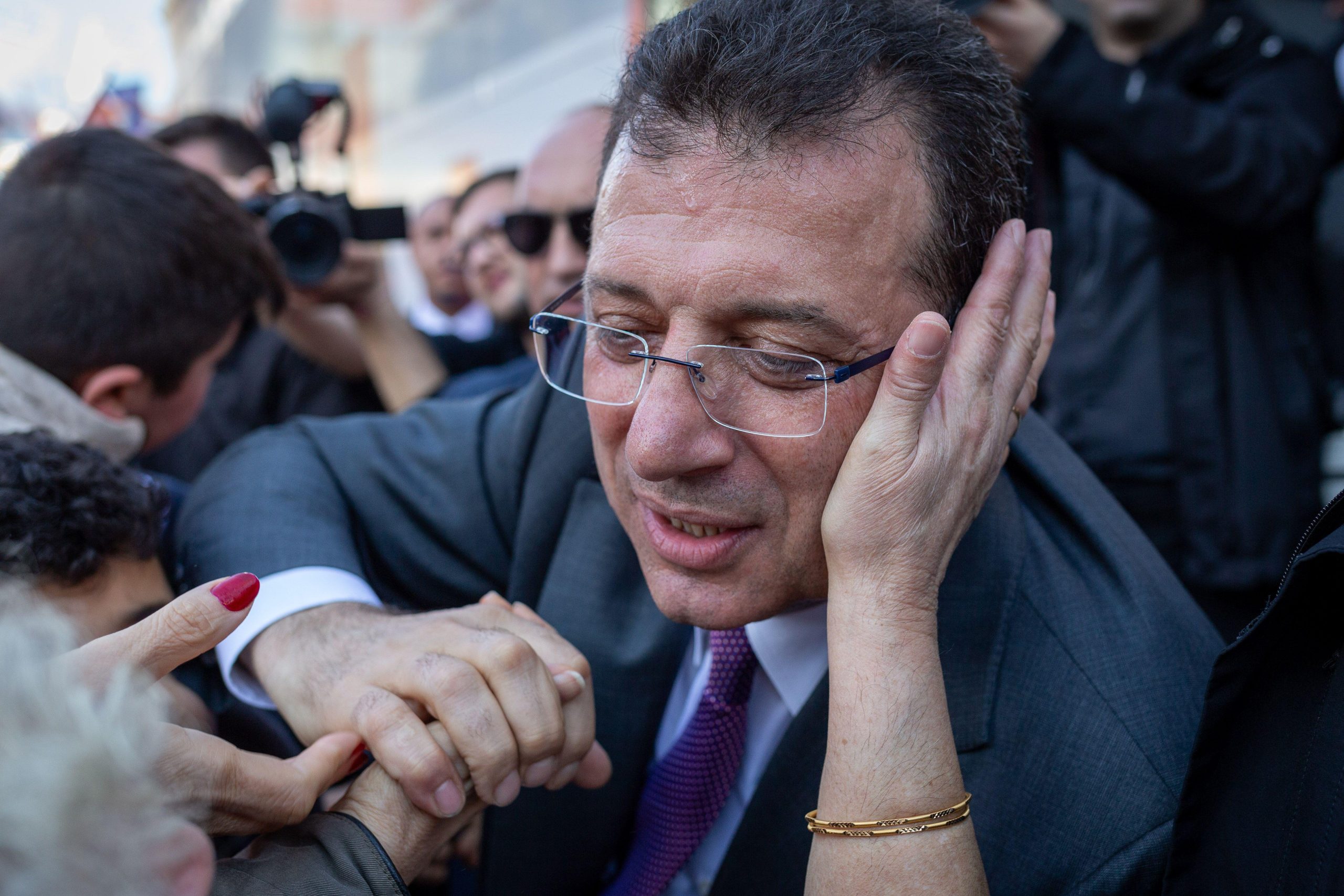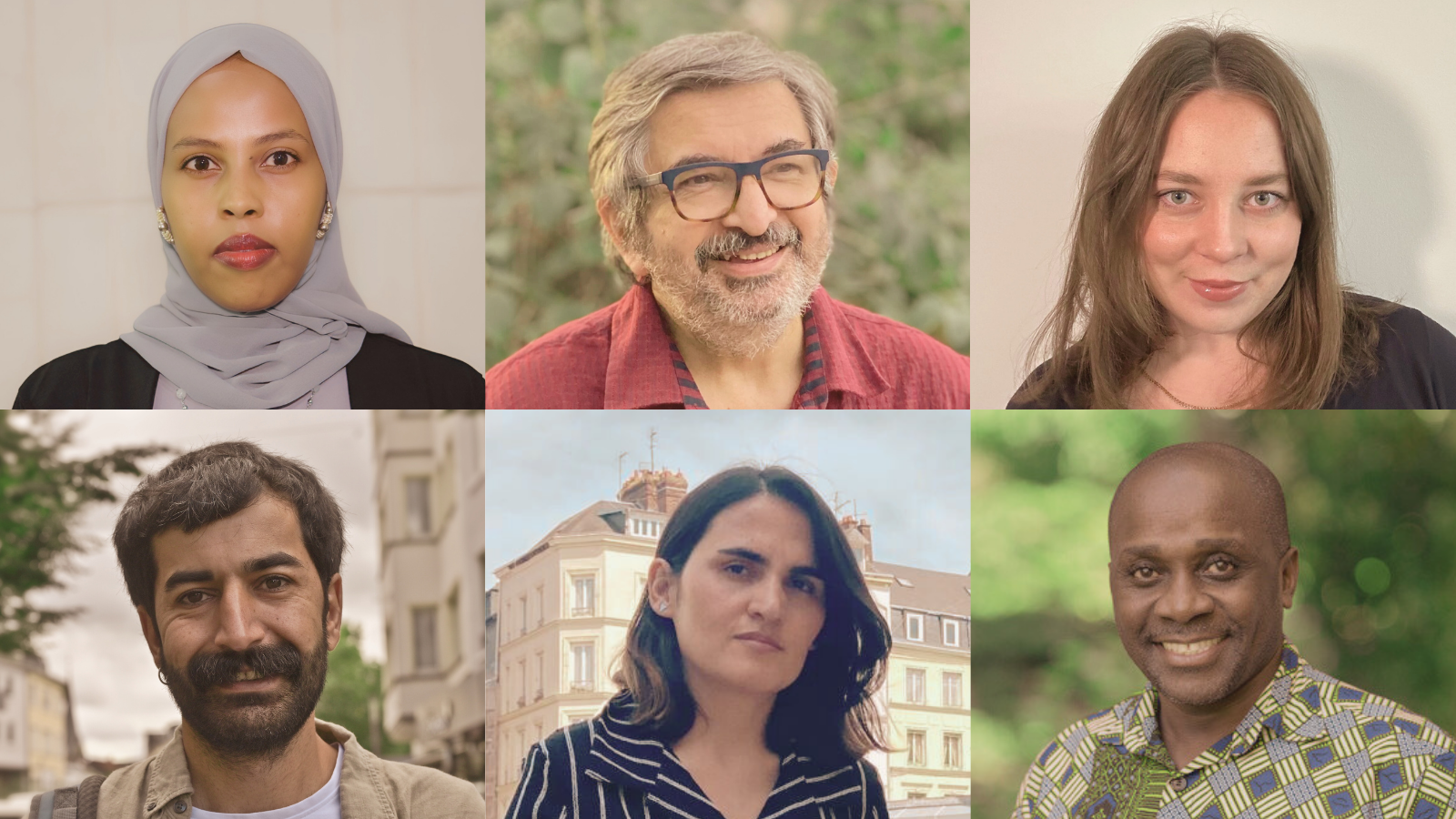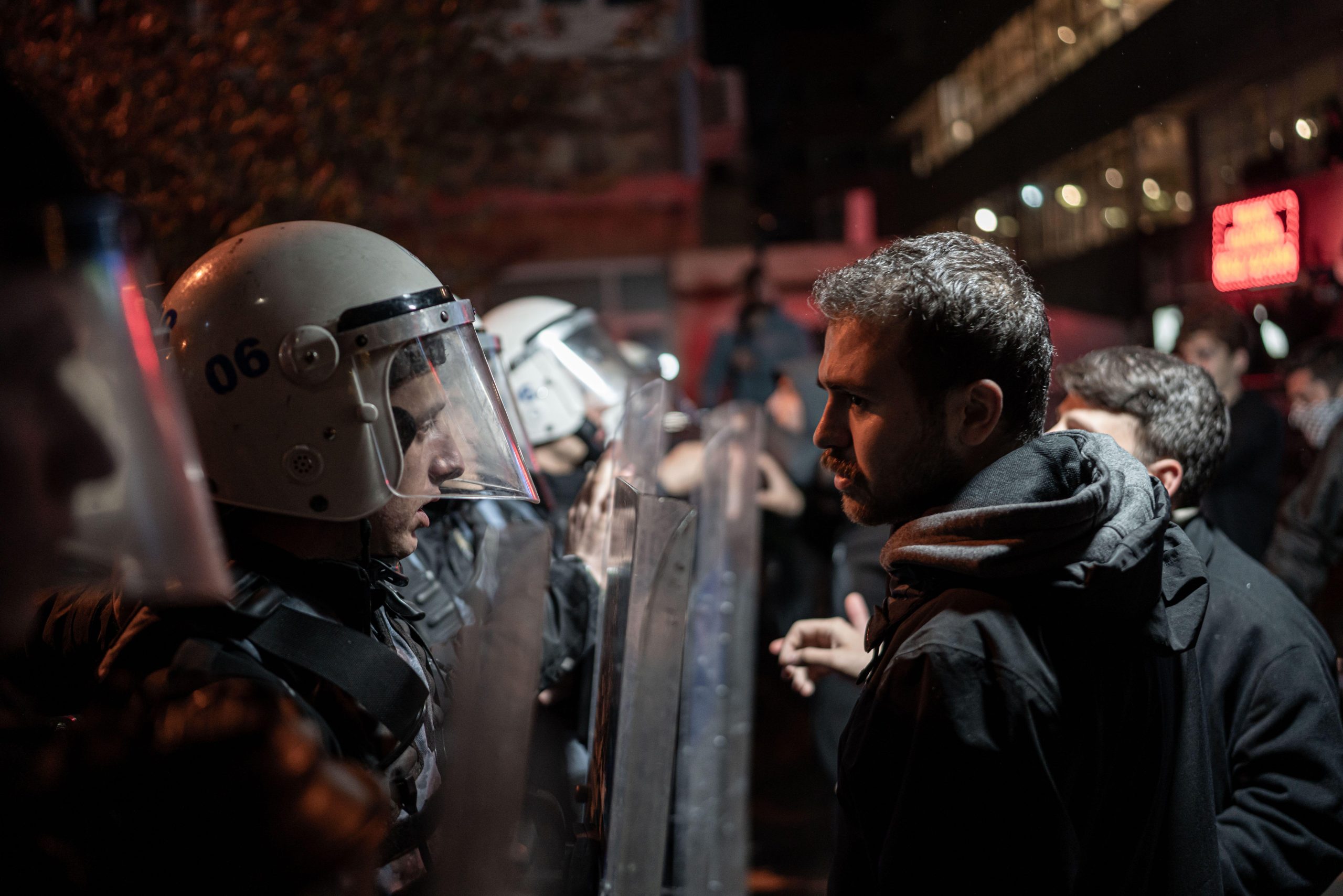 Turkish publisher Ragıp Zarakolu, honoured by the International Publishers’ Association for his ‘exemplary courage in upholding freedom to publish’ this year, details the historical and political context behind repression of free speech in Turkey
Turkish publisher Ragıp Zarakolu, honoured by the International Publishers’ Association for his ‘exemplary courage in upholding freedom to publish’ this year, details the historical and political context behind repression of free speech in Turkey
We can define Turkey as a country in transition, from authoritarianism to democracy, from ‘the national security state’ to a democratic state of equal and free citizens, a process which has been underway for a century. During the Cold War, the armed forces of the pro-US countries faced external enemies but also a so-called internal enemy. In the 1960s and ‘70s a new sort of military coup swept the world. Argentina, Chile, Indonesia and Turkey experienced a kind of genocide, targeting different sections of the Left. Militarists seized state power, trying to socially engineer an entire political system. Using a national security model perfected in collaboration with the Pentagon, National Security Councils were established in client states, with the model’s most extreme form developed in Turkey. There the National Security Council was transformed into the highest political decision-maker, with the equal participation of a self-governing military apparatus. It even had a secret constitution, the Document of National Security Politics, known as the Red Book.
At the instigation of the army the government of Recep Tayyip Erdoğan removed ‘ultra-nationalism’ and ‘racism’ from the Red Book’s list of national threats, opening the door to aggressive nationalism and the legitimization of extremist violence. Conspiracy theorists fuelled a wave of nationalist paranoia as a by-product of psychological warfare. TV programmes extolled racism and violence, creating a new kind of role model for society. Though painted as dauntless defenders of secularism, the state sustains a form of secularism where most religious functionaries can claim a civil servant’s salary. Non-Muslim bodies run by and supporting Turkish citizens enjoy no such support. These ‘threats’ are created and exaggerated by an obsolete militarism trying to control society. The General Staff’s website — one of the key objectives of which is to deny the 1915 Armenian genocide — includes Christian missionaries on its list of dangers. They see Greek and Armenian orthodox foundations run by Turkish citizens as a threat to national security. Some courts have even ruled Turkish non-Muslim organizations to be ‘foreign bodies’. Former president Ahmet Necdet Sezer vetoed a bill reforming Turkey’s Law of Foundations, objecting to privileges for ‘foreigners.’ The Greek Patriarchate, spiritual leader of the Greek Christian minority in Turkey, is accused of heading a ‘new Vatican’. The secret Subordinate Committee for Minorities, established by Ismet Inönü’s government in 1961 helped pave the way for the wave of repression against minorities.
It has worked. The once thriving Greek minority population in Istanbul has declined to about 1,900 today. Every year another minority school or church closes. Even western Protestant and Catholic communities in this so-called secular country face significant obstacles to registering and opening places of worship. Extreme nationalist Grey Wolf groups have bombed the Greek Patriarchate, and pseudo-leftist nationalists have attacked Protestants. No direct orders need to be issued. The numerous racist and nationalist organisations will do whatever is required. I ask: were the objections to Hrant Dink’s reports on the alleged Armenian roots of Sabiha Gokçen, adopted daughter of Kemal Ataturk, a coincidence? Were the threats against Turkey’s Assyrian and Syriac peoples that followed new allegations of genocide against their communities at the end of the Ottoman era, a coincidence? Are a recent series of attacks on Catholic clerics a coincidence? Why are Protestants and Germans in Turkey suddenly facing harassment for following their religious beliefs?
An entire mindset has been based on the concept of ‘one nation, one religion, one sect’ and of an era governed by ‘one party’. What has all this to do with a state that claims to be secularist? We should look at the global picture and a wider range of events fostered by the secret armies organised by NATO after the Second World War. Trained by US and British Special Forces, the so-called Stay Behind units –– commandos equipped to stage behind the lines attacks on a Soviet assault that never came – instead linked up with right-wing terrorists to target imagined internal threats from the left. Despite being exposed as terrorist conspirators at the end of the Cold War by Italian premier Giulio Andreotti and other European leaders, the last units in Turkey continued to operate against the Kurdish rebels and Turkey’s leftist community.
Only after Russia’s military intervention in Turkey’s Black Sea neighbour Georgia did Ankara finally take steps to disband its last embarrassing legacy of Cold War NATO membership, the Ergenekon Turkish counter-guerilla force. There are no coincidences. A deeply militarist mindset lays deep roots. Turkey lost its political balance after the annihilation of the Left by the military juntas. The very existence of the country’s left depends on international solidarity.
Unfortunately, since September 11, 2001, national security state anti-terror laws have been given even more power in Turkey –– indeed, in many countries — to restrict freedom of expression. Our publishing house, Belge International Publishing, was targeted under anti-terror laws when we published books about the Kurdish question and the Armenian genocide. Books that critiqued state terror and condemned terrorism were accused under anti-terror law. The Erdoğan government reformed the anti-terror law in 2004, deleting a clause that controlled the opposition press. But in 2006 the National Security Council demanded that the clause be restored in a stricter form.
Now Kurdish and opposition publications may be silenced for a year waiting for trials to begin. Their defence lawyers’ rights are restricted. Jailed journalists are sent to special isolation prisons where they have fewer rights than ‘ordinary’ criminals. As the 2007 Turkish Publishers’ Association Report On The Freedom Of Publishing noted: the papers Özgür Gündem, Atılım, Birgün and Evrensel, broadcasters Free Radio and Voice of Anatolia and periodicals Özgür Halk, Yürüyüş and Kaos GL have been banned and some even faced raids by security forces. The editor of the periodical Sanat ve Hayat and the chair of the BEKSAV Institution for Art and Culture, Hacı Orman was threatened and arrested. Some 600 separate charges were brought against Özgür Gündem and its editor-in-chief Hasan Bayar sentenced to nearly six years imprisonment. As we found again in our 2008 Report, article 8 and 7.2 of the Anti-Terror Law was particularly directed against the media. The newspaper Alternatif was banned for a month a week after opening. The same fate awaited the newspaper İşçi-Köylü (Worker-Peasant). The negative effects of these restored and enhanced clauses to the Anti-Terror Law became increasingly clear, even to those who had closed their ears to the warnings of the Turkish Publishers’ Association. Even mainstream papers such as Hürriyet and Radikal tangled with the anti-terror law for interviews they published. Meanwhile Füsun Erdoğan, chief editor of Free Radio and four staffers at Atılım, are charged with membership of an ‘illegal organisation’. Though Vedat Kurşun, editor of Turkey’s only Kurdish language daily Welat, has recently been released, the editor-in-chief of the periodical Odak was not freed, even though he suffers from a terminal illness. And Ali Turgay, editor-in-chief of the newspaper Seventh Day, was arrested as he made a statement to Beşiktaş Judicial Court. He is charged with ‘aiding and abetting an illegal organisation’. But around the world free speech groups criticize Turkey’s anti-terror law and its abusive curtailment of freedom of expression. The European Court of Justice has upheld appeals against the convictions of publishers of opposition media under the Anti-Terror Law.
As we said in our 2008 Report, narrow-minded interpretations of article 215 of the Turkish Penal Code, which criminalises the praising of a criminal or a criminal act, make it difficult to publish documents relating to the last 40 years of Turkish political history. Although the banning of books has become rare, the collected writings of Mahir Çayan, a youth leader of 1968 and his Revolutionary Songs, both published by Su Publishing were banned. A similar collection by Bora Publishing was banned in 2004. Writer Haluk Gerger was imprisoned for a talk he gave on Deniz Gezmiş, a youth hero of ’68. Temel Demirer is currently standing trial for speaking at a panel in Tunceli about İbrahim Kaypakkaya, another youth leader from that era. A separate case against the same writer – for his speech at the memorial ceremony for Hrant Dink – is currently suspended as a result of the change made to Article 301. After former parliamentarian Mahmut Alınak was jailed for his proposing that streets in the city of Kars be named after left wing and pro-Kurdish figures, we were happy to learn that a park in Diyarbakır was to be named after (Zarakolu’s late wife) publisher Ayşe Nur Zarakolu. But the decision was reversed by the Diyarbakır governor on the grounds that she had once been imprisoned, even though Ankara had already agreed to pay compensation after the European Court of Human Rights found she was unfairly convicted.
There are gains. After Hayat TV was closed by order of Turkish Radio & TV (RTUK) in July, a protest by writers and intellectuals led to the lifting of the ban in August. But this is not enough. The core of the issue lies in the unsolved Kurdish problem, an issue on which militarists have never sought a peaceful political settlement, and who see the issue of respect for human rights as the main obstacle to solving the ‘problem’! Finding a just and political settlement for the Kurdish problem will break militarism’s means of controlling society. The Kurdish war is the military’s justification for political interference, a policy that suits Prime Minister Erdoğan well. The military tolerates political Islam in return for acceptance of the Anti-Terror and Police Authority laws. That frees it to target the ‘internal enemy’ at home and abroad, including progressive academics such as historian Taner Akcam in the US and Holland. We do not show enough solidarity with the Kurdish media, in recognition of the threats and pressure they endure. So to show that solidarity I accepted the honorary post of editor-in-chief of the newspaper Alternative, to show support for freedom of expression and the right to freely express opinions on the Kurdish question. And as a result I was summoned by the prosecutor of the Serious Crimes Court at the end of August on connection with possible breaches of the Anti-Terror Law. You will hear more soon.
* Ragip Zarakolu was speaking at the opening of a two day international seminar on neo-censorship (Threats to the Open Book) organised by Amsterdam World Book Capital and co-sponsored by IPA. He was nominated for the IPA award by Index on Censorship.




